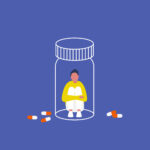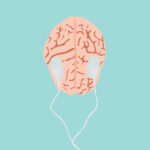
A group of students from the UCL MSc in Mental Health Studies summarise a study on the association between loneliness and depression among older adults.
[read the full story...]
A group of students from the UCL MSc in Mental Health Studies summarise a study on the association between loneliness and depression among older adults.
[read the full story...]
Adele Framer, Founder of SurvivingAntidepressants.org, explores a recent Cochrane review on antidepressant discontinuation versus continuation for adults with depression or anxiety, which highlights huge uncertainty in the science about antidepressant withdrawal.
[read the full story...]
Edel McGlanaghy critiques a systematic review which finds that meditation may lead to adverse events, particularly psychiatric adverse events.
[read the full story...]
Nada Seif reviews a recent survey study on self-reported mental health problems in ICU staff working during the UK 2020 COVID-19 pandemic.
[read the full story...]
Alice Grishkov and Derek Tracy explore a recent paper, which finds that generalised anxiety disorder is on the rise in the UK, especially in young women.
[read the full story...]
Delia Ciobotaru reviews a recent randomised controlled trial on the neurocognitive effects of transcranial direct current stimulation in depression.
[read the full story...]
Francesca Bentivegna summarises a meta-analytic review exploring atypical social reward anticipation as a transdiagnostic characteristic of psychopathology.
[read the full story...]
Andres Fonseca summarises a recent RCT which finds that apps for depression and anxiety in an IAPT service can be effective and cost effective.
[read the full story...]
Aggelos Stamos reviews a cross-sectional Canadian study that explores the links between low socioeconomic status, parental stress, maternal depression, and the mediating role of social capital in mothers.
[read the full story...]
Yara Toenders and Lianne Schmaal consider the links between inflammatory dysregulation and depression in young people, by reviewing a recent study carried out by researchers in the US, and also by presenting the results of their own recent #ActiveIngredientsMH review, which was funded by the Wellcome Trust.
[read the full story...]